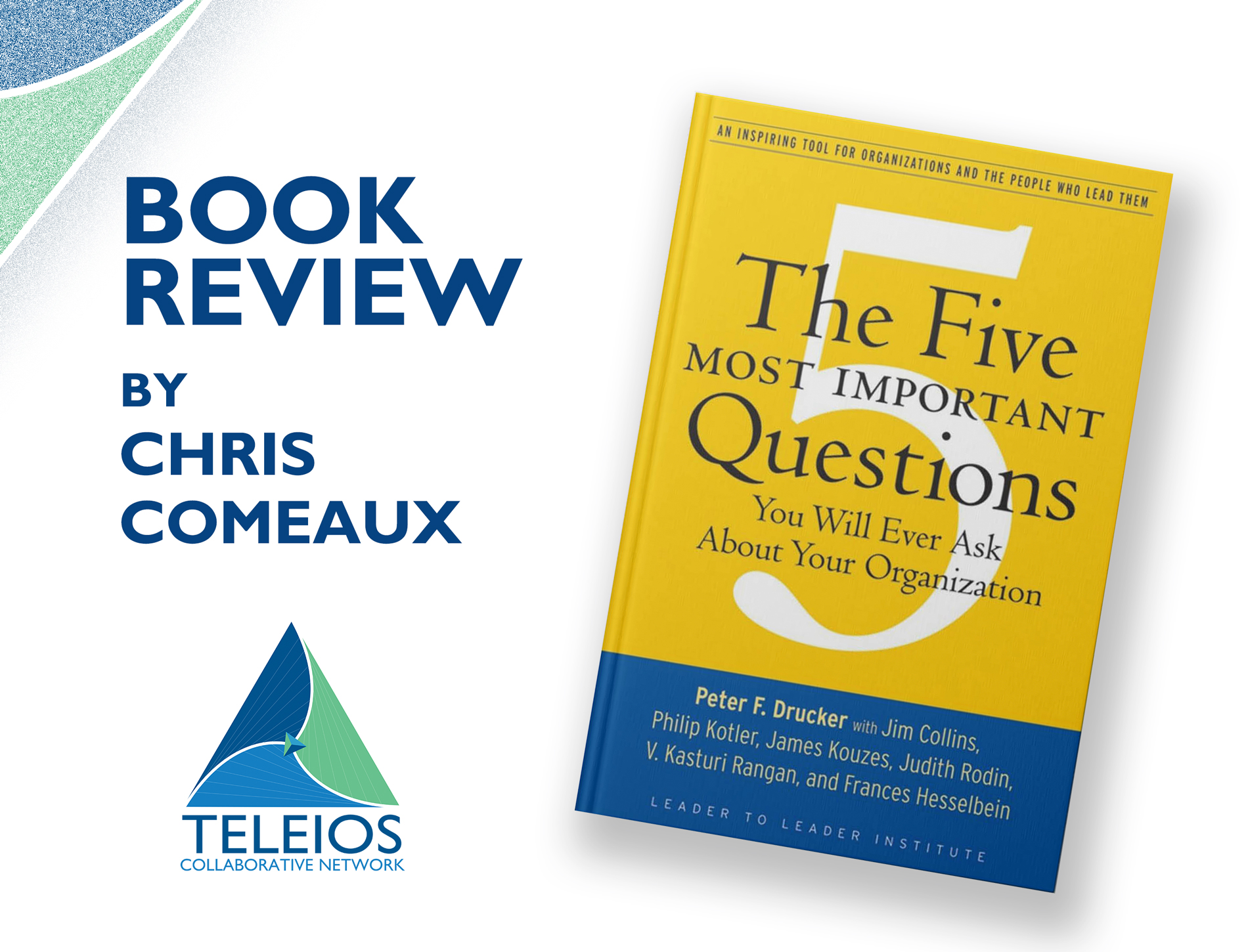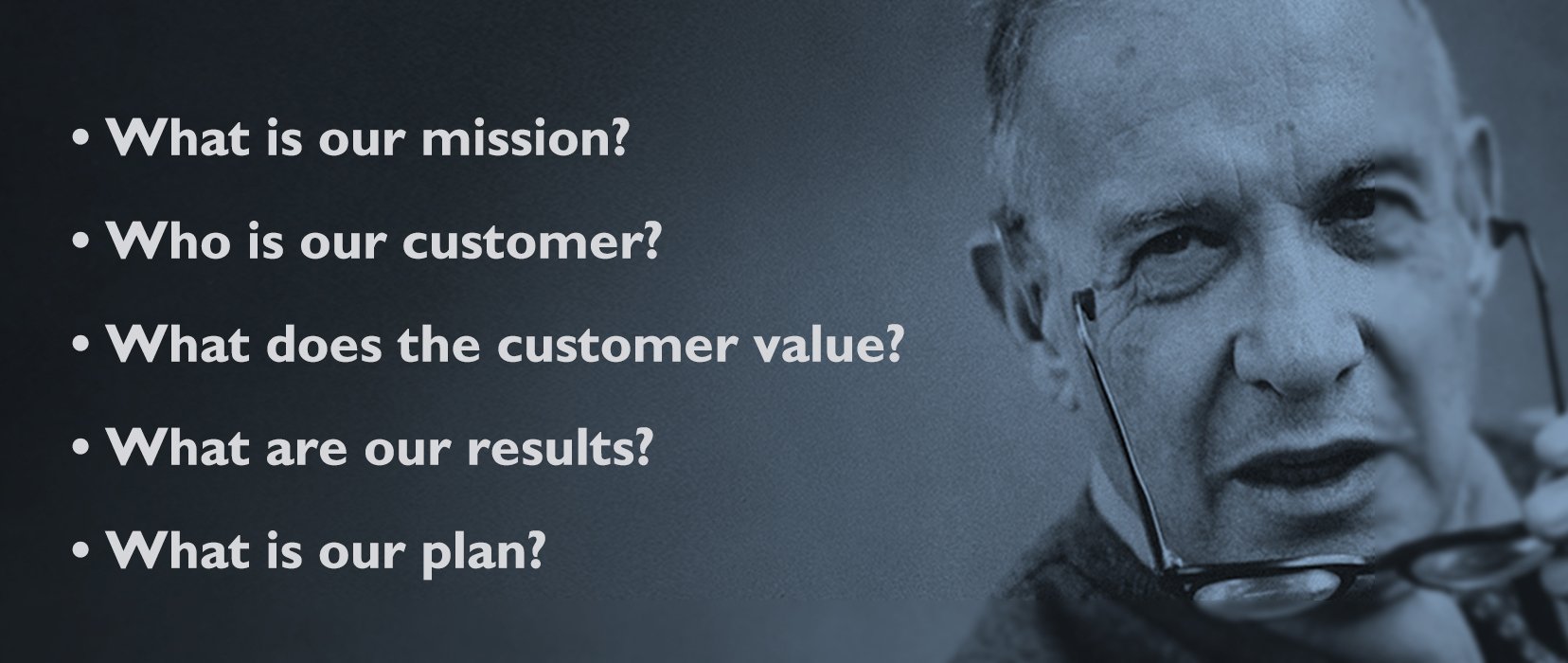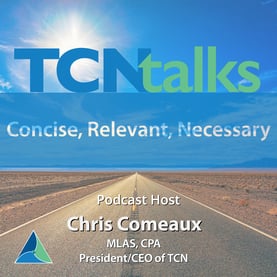11 min read
The Five Most Important Questions You Will Ever Ask About Your Organization
By: Chris Comeaux on 11/5/21 9:49 PM

I am often asked, “Chris, which book should I start with if I want to learn more about leadership?”
BOOK REVIEW
by Chris Comeaux
That is such a hard question. Many who know me know that I am usually reading three or four books at a time and that I am a product of the many great authors who have written on this vast subject. Several years back, my mentor, Dr. Lee Thayer, challenged me to do a book review on The Five Most Important Questions You Will Ever Ask About Your Organization. I had never heard of the book, but it seemed I could read it in one evening, so I jumped into the task with both feet. I was so glad that I did. What follows is the book review I submitted to him, and I pay it forward to you as there is some great learning regarding leadership.
Back to the Basics
The Five Most Important Questions You Will Ever Ask About Your Organization is a great place to start if you are looking for direction as a new leader, especially in the hospice and palliative care arena. If you are an organization leader with intermediate-level skills, it would serve as a good refresher around what you are primarily responsible for in your role.
For the new leader, the book is a quick read and provides a road map of the Five Most Important Questions for you to ask about your organization:

If, as a new leader, you keep these questions top-of-mind and endeavor each day to move towards an understanding of the answer to them, you will be head and shoulders above where most leaders concentrate, especially in the hospice and palliative care industry, or even healthcare in general.
Think of it as a discovery process rather than something that is on your “to-do” list. This discovery process will keep you more closely connected to why you chose to go into this work in the first place – a key to your leadership journey.
It is so easy to get caught up in the “thick of thin things,” as Stephen Covey puts it, that most leaders (nonprofit and for-profit alike) lose sight of these most basic questions. The saddest part of getting caught up in the “thick of thin things” is that you end up working hard and doing lots of things, but not necessarily the right things. Action does not equal effectiveness. These questions can help you avoid that path most traveled.
For the intermediate leader, this book could be a clarity event. It may not seem groundbreaking or revolutionary to ask yourself these questions about your organization. It may even seem to be a little cliché. And that is the problem with cliché: we lose the richness, freshness, and clarity behind the meaning of something that, at one time, was very meaningful. If you can enter this quick read with the intent to revisit these very basic principles, then you may come away with a clarity of what you should be spending your time doing. Quite often, leaders do not have that clarity due to the day-to-day grind of their job, which is where many leaders find themselves today: very busy, passionless, and not quite sure where they went awry. This book is worth the read so that the questions within can help you head off any languishing frustration you may be feeling.
Expounded Take-Aways
The book was originally written by Peter Drucker, but a newly revised version includes a commentary for each question from one of our modern-day gurus like: Jim Collins, Philip Kotler, Jim Kouzes, and Judith Rodin. Unfortunately, none of the commentaries go into the nuts and bolts of how to go about finding the answers to these questions. Such an approach would have been refreshing and a great addition to Drucker’s original work. Out of all the commentaries, the two I found to be the most insightful and helpful were Jim Collins’ and an additional chapter added by Frances Hesselbein, both of whom happen to be two of my favorite leadership authors.
Jim Collins addressed Drucker’s first question, “What is our mission?,” pulling from his work in Built to Last, where he pointed out the paradox of change. In his words: “Indeed, the great paradox of change is that the organizations that best adapt to a changing world first and foremost know what should not change.” That insight is critical to the intermediate-level leader who may feel like they have a mission that is not keeping up with the changing marketplace or changing needs of the area they serve. Hence the necessity of all five questions working together.
In her chapter titled, “Transformational Leadership,” Frances Hesselbein lays out eight milestones that she says are necessary for an organization to reach its destination:
- Scan the environment,
- Revisit the mission,
- Ban the hierarchy,
- Challenge the gospel,
- Employ the power of language,
- Disperse leadership across the organization,
- Lead from the front, don’t push from the rear,
- Assess performance.
While not an exact “how” on the Five Questions, it provokes further thinking and insight into how one might go about finding, “What is your mission?,” and it gives some good beginning thoughts to execution.
Hesselbein’s chapter also points to the reality that the The Five Most Important Questions You Will Ever Ask About Your Organization is not the ‘panacea’ or end of all questions that need to be asked. Drucker originally published this book over twenty years ago and, undoubtedly, the work was and is still relevant as the Five Questions are a great start, however, there are more questions that need to be answered after you have answered the original Five. Here is my shot at them:
- Now that you know the answers to these Five Questions, can you execute the Plan?
- If not, what needs to change in order to execute?
- Is your team where they need to be in order to execute?
- Are you where you need to be in order to execute?
- Do you and your team have the competence?
Finding the answer to the Five Questions is not easy, and most certainly the answer to the additional questions I propose are as hard, if not harder. That is why leadership is not for the faint of heart.
In Conclusion
In conclusion, the clarity afforded by Drucker’s original questions is worth any leader’s time in gaining fresh perspective and insight. Leadership is easily overcomplicated, and Drucker’s questions, as well as those offered in expansion, lend simplicity to the overwhelm that those in any stage of leadership may be experiencing, and provide a clear understanding of where you should spend your time as you move forward with your organization.
Chris Comeaux, President / CEO of Teleios Collaborative Network

The Five Most Important Questions You Will Ever Ask About Your Organization: by Peter F. Drucker with Jim Collins, Philip Kotler, James Kouzes, Judith Rodin, V. Kasturi Rangan, and Frances Hesselbein, 2008
WANT TO IMPROVE YOUR LEADERSHIP SKILLS?
attend our LEADERSHIP IMMERSION!
LEARN MORE
TELEIOS UNIVERSITY (tu)
Register Today!
specialized strategies for hospice growth
Learn More
We invite you to listen
to our TCNtalks Podcast

Concise, relevant, need to know to help you
in your role as a serious illness professional.

An organizational model that allows nonprofit hospices (Members) to leverage best practices, achieve economies of scale, and collaborate in ways that better prepare each agency to participate in emerging alternative payment models and advance their charitable missions.
Related Posts
Becoming a Leader You Would Want to Follow
As a proud graduate of Teleios University,I continue to use the leadership skills I developed in ...
The Knowing Mode vs. The Learning Mode
You may have seen our tribute to Dr. Lee Thayer several weeks back. We were honored to give an ode...
The Knowing Mode Vs. The Learning Mode
If you were able to observe yourself, do you know what your question-to-statement ratio is on a...


